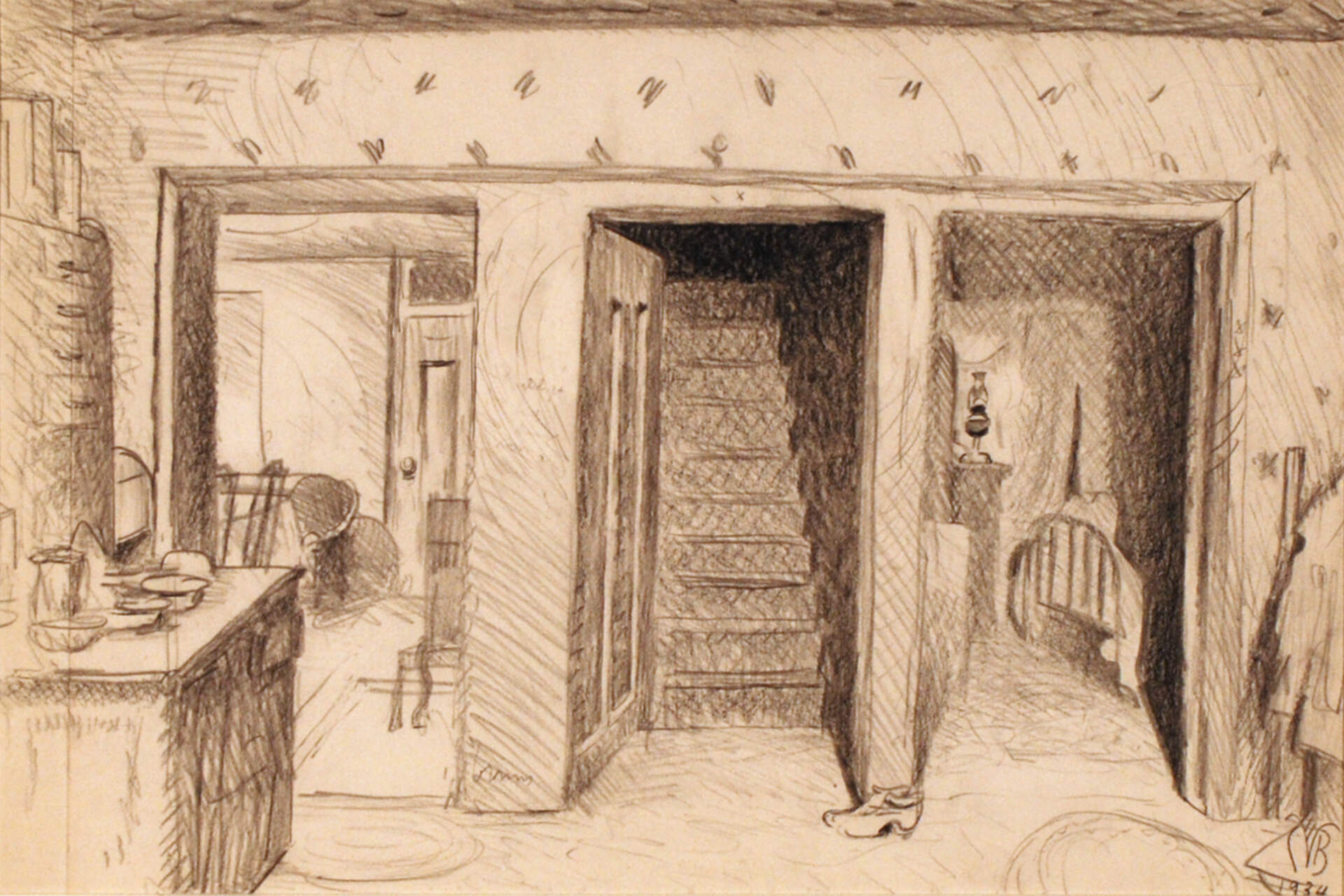
Charles E. Burchfield (1893-1967), Three Doorways, 1934; carbon graphite and conté crayon on paper, Overall: 12 1/8 x 18 3/8 in. (30.8 x 46.7 cm) Frame: 21 1/2 x 27 1/4 in. (54.6 x 69.2 cm); The Charles Rand Penney Collection of Work by Charles E. Burchfield, 1994
Charles E. Burchfield, Journals, October 3-8, 1934
Wednesday, Oct 5, 2016
October 3-8, 1934
A season of anxious waiting and daily expectation of the end. A time of sadness, and yet something sweetly sad about it too, for she was herself the first days, tho weak, and drugs relieved the pain. We got to have several nice talks with her, especially Bertha, poor girl. And also, one morning the children brought in all the things they had made for her birthday one by one. She exclaimed over them and seemed so pleased – One evening late, with Emma, Bertha Mary & I in the room, she asked for the old prayer in German starting “Müde bin ich – “ - they all recited it together; Mother K, closed her eyes, and it seemed to me then that that was the end, and how beautiful it was to go like that. (However it was not until the following Wednesday evening that she passed away, after we had come back to Gardenville.)
For it seemed like the passing of all the remaining hold Ohio had on me. I had grown to love the farm like a second home, and now it too was fading.
Saturday afternoon – took Martha, Catherine & Arthur to see “where I burned a tree down” – we entered at “Posts”, from the Painter road, and got into Pinehollow at the beginning of the ravine. The children I believe expected the remains of the tree to be there yet – I found a burnt stump near the spot which I declared must be the one. This little episode had something of the mystical about it. I could hardly describe how I felt. Somewhat of the strange unreality of a dream. I had not imagined that this woods would still have the same beauty or romance that it had for me as a boy; but it did – perhaps more as – the ravine, beginning as a leaf filled crease in the earth, seemed especially beautiful. It was late in the day, already twilight was stealing among the trees, the ravine to the east has dark & shadowy, like things are in a dream. The “dump” was still there, filling more of the hollow, and as always burning. I seemed to draw closer to my children somehow, our childhoods met and were merged, we had been children together. An accumulation of probably several years’ leaves on one bank invited us to play and we plunged into them hilariously.
In the morning, Bertha with Catherine and Arthur drove me to the end of High St, where I left to walk out to the farm, by way of Bentley’s & Farquhar’s – a sentimental journey but a fine experience. Somethings were changed, somethings gone, but others the same as old. The diagonal path across the field in front of Bentley’s – how short it seemed - - The old wooden trough was still there, but at this season, no black & white dragon–flies (sic). The writhing beech over the spring was gone, but the stone wall of the spring was covered with a curling leafy mass- like plant something I had forgotten – The lowest grove like a sacred place – a sombre exalted mood about it - The leaning oak seemed unchanged – the old mine’s opening all but closed. The once opened part of the south side, now over grown with saplings, the two chestnuts killed by the blight – found a wild apple.
The area between Bentleys & Farquhar’s unchanged and how good it seemed to be here again – along the south of Farquhar’s - the oak trees where I gathered acorns, still the same – I gathered some for my children.
On thru the Dutchman’s – here everything altered so much, it was almost unrecognizable. From here on it became just a country walk -.
Charles E. Burchfield, October 3-8, 1934